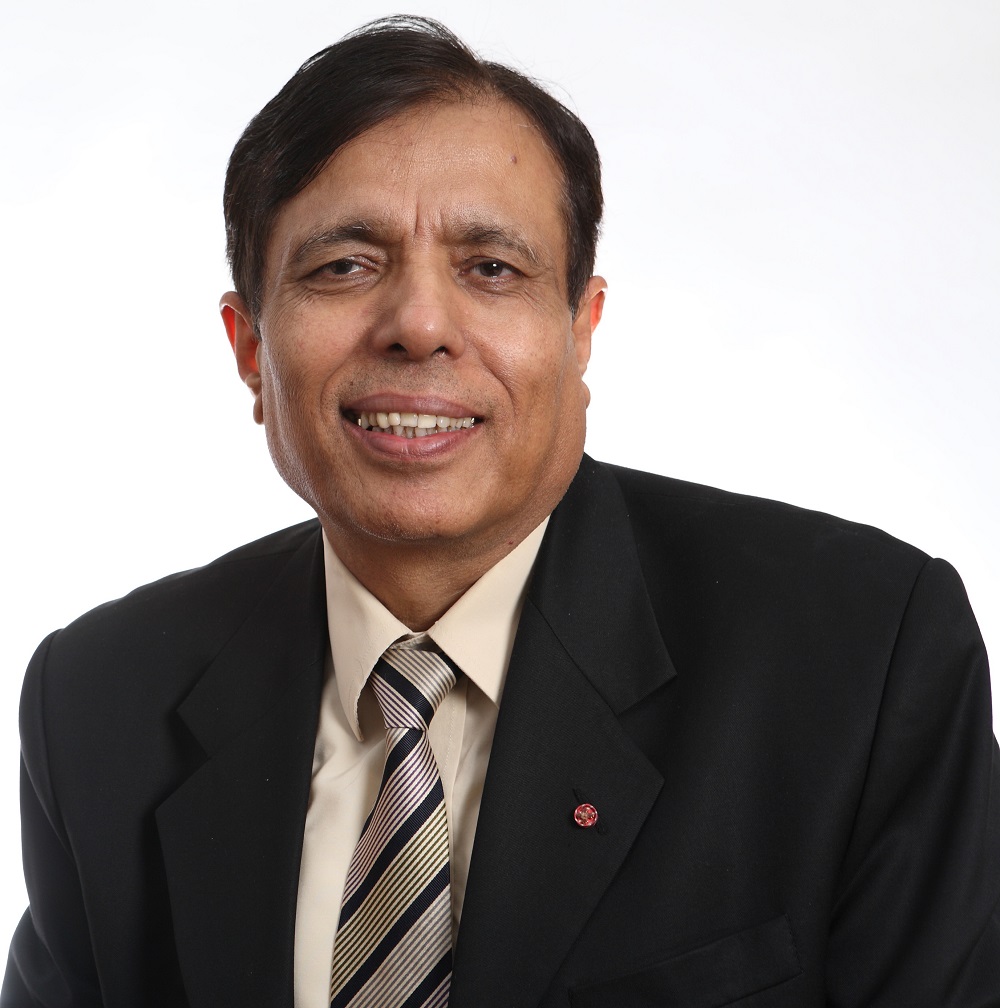As Covid 19 hits the globe, two major risk factors are thought to make the coronavirus deadlier for those who catch it: old age and pre-existing health conditions. Leading UK health campaigner Dr Kailash Chand OBE argues there is a body of research pointing to a third: low socioeconomic status.

If you are living in poverty, you get ill quicker, more often and you die sooner. Life expectancy is flattening and declining for the poorest 10% of women. Health inequalities are widening and the North/South health gap has increased. All this increases strain on the NHS in general and general practice in particular. The latest report by Professor Marmot, who I greatly admire, comes 10 years after he first published data on the growing gap between rich and poor, and between north and south in England.
Our health is determined by a complex mix of factors including income, housing and employment, lifestyles and access to health care and other services. Professor Marmot today says: ‘If everyone in England over the age of 30 had the same low mortality as people with a university education, there would be 202,000 fewer deaths before the age of 75 each year.’
Three million extra years of life saved each year. This could be multiplied all over the planet.
Lifestyle principles across the board are much more powerful than anything a doctor can do for his patients. Much more than 90% of modern diseases are preventable through education. A heart attack can cost £20,000 to treat. If it can be prevented, that has huge cost implications. I would estimate that something like 50% to 70% of my patients’ medical costs would not just be reduced but eliminated if their diets were healthier and they exercised more.
Politicians and policymakers openly recognise the relationship between the state of the economy, lifestyle and poor health. In his first speech as health secretary, Matt Hancock said everyone has a part to play in preventing ill health, ‘from the education we receive, to the home we live in to, to the job we do… all of this shapes our physical and mental health.’
But what has he done to walk the talk? Surely there can be no greater social injustice than people dying sooner due to poverty. Professor Marmot’s devastating report today shows that after ten years of grinding austerity, health inequalities are actually widening.
If the Minister does believe this, he must agree to reversing the swathe of public health cuts to council budgets, increasing substantially primary care funding, would be a sensible place to start.
Public Health England (PHE) recently mapped mortality rates across the country so that local people and councils can see where they rank for premature deaths from the four main killers: cancer, lung disease, liver disease, and heart disease and stroke. The figures show that people living in the worst-performing area, are more than twice as likely as people in prosperous areas, to die before the age of 75.
In the face of a worsening demographic picture nationally, local authorities have now been asked to find additional in-year savings of millions. This was described by The King’s Fund as ‘the falsest of false economies’ – a judgement it seems difficult to disagree with.
In addition, there will be considerable pressure on the public health function in England in coming months and years to deliver short-term savings. Perhaps the greatest impediment faced would be the reduction of funding from social care budget, causing the passage of older patients through the system to grind to a halt.
Public health interventions deployed over the short term that potentially offer quick savings are an appropriate part of tackling the public health challenge. But NHS England should not lose focus on the longer-term and potentially genuinely transformative interventions directed, for example, toward changing unhealthy behaviours and addressing the social determinants of health.
Ultimately, like any other part of the planet, patients in this county hope for a health and social care system with both the energy and passion to bring about the kind of radical strategic change the UK needs to become a healthier and fairer society – which is how the World Health Organisation defines a healthy country.
Consider this, it is just over three years since the last piece of the jigsaw in Andrew Lansley’s controversial NHS reforms were put into place. In 2015, health visitors moved into local government to complete the transfer of public health from the NHS to councils.
Put simply, Lansley’s Bill decimated public health’s resources, funding and capacity.
There are some things best done at scale and ensuring laboratory capacity (which means overcapacity in peacetime) is one; funding research that’s not commercially viable – rare diseases, emerging diseases, diseases of the third world – is another. Instead, presently we have a system which cuts costs to the level which can barely fund average demands, not even seasonal peaks.
The London PHL stepped up and did a huge amount of testing (and test development) during the H1N1 pandemic. Then they closed it down, despite protests from public health doctors.
Post-Covid there needs to be a revolutionary transformation of public health as an organisation closely aligned with the NHS, not divorced from it. We need to be prepared to spend some money on preparedness, on spare capacity. After all, we spend vast amounts on “defense”, despite no attempts having been made to invade us since the 1940s.
We need to have capacity built-in so that we’re not chasing our tails trying to reduce risks to ridiculously low levels (eg iGAS), but put more effort and resource into preparedness, planning, IT and other infrastructure. Rather than being forced to justify every penny spent and cutting posts.
Also, Coronavirus is impacting the BAME community more. 71% of the 45 NHS staff dying from Coronavirus are BAME. 62% of NHS dying from Coronavirus were born outside the UK. Several of those staff died at home during self-isolation. Italian authorities said that 19-year-old Luca Di Nicola died unnecessarily in a London hospital due to late admission. When 13-year-old Ismail Abdulwahab died of Coronavirus his family indicated he was admitted only when his condition deteriorated. Kayla Williams, aged 36, died in her home after begging NHS111 to take her condition seriously. The BAME mother of 3 was told she wasn’t in an at risk category. All of the individuals above came from London which has a higher BAME population, but also low air quality.
A government report highlighted that over a million children had no access to an outdoor play area, this primarily affected inner-city areas. This makes it harder for inner-city poor people to get ‘lung ready’ should they contract the virus. It is also worth noting that 10 Filipino NHS staff have died of Coronavirus. Second only to India, the Philippines supplies 18,000 workers to the NHS. It is a cheap source of labour but also one that carries low value given the government’s restrictions on visa entry.
An investigation is needed to explore whether triaging decisions are adversely impacting the BAME community!
COVID should be a wake-up call for the importance of unified well-planned NHS with strong public health, not PHE QUANGO stuffed with ideologically aligned associates with vested interests.
Follow:








